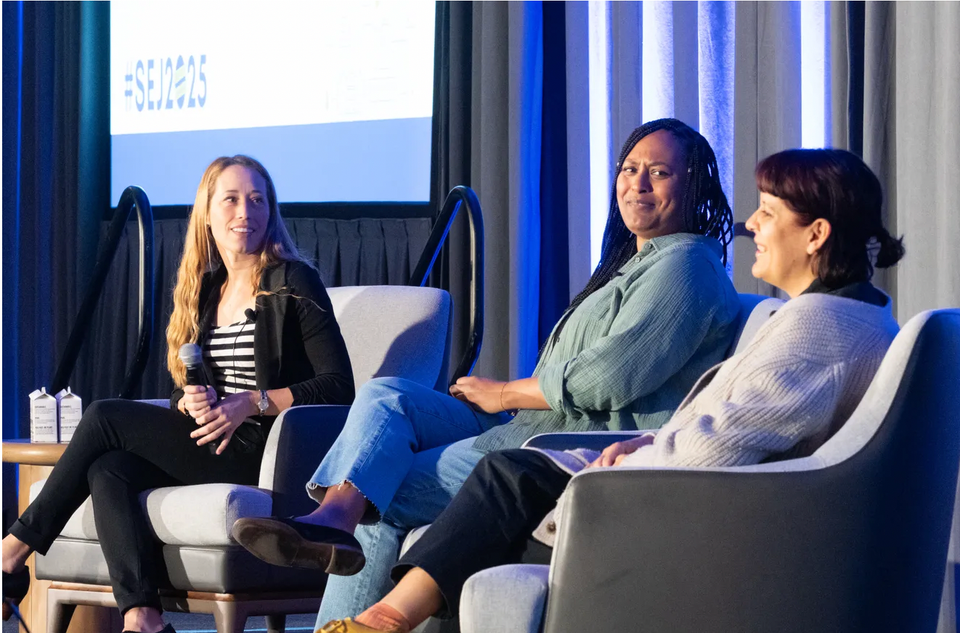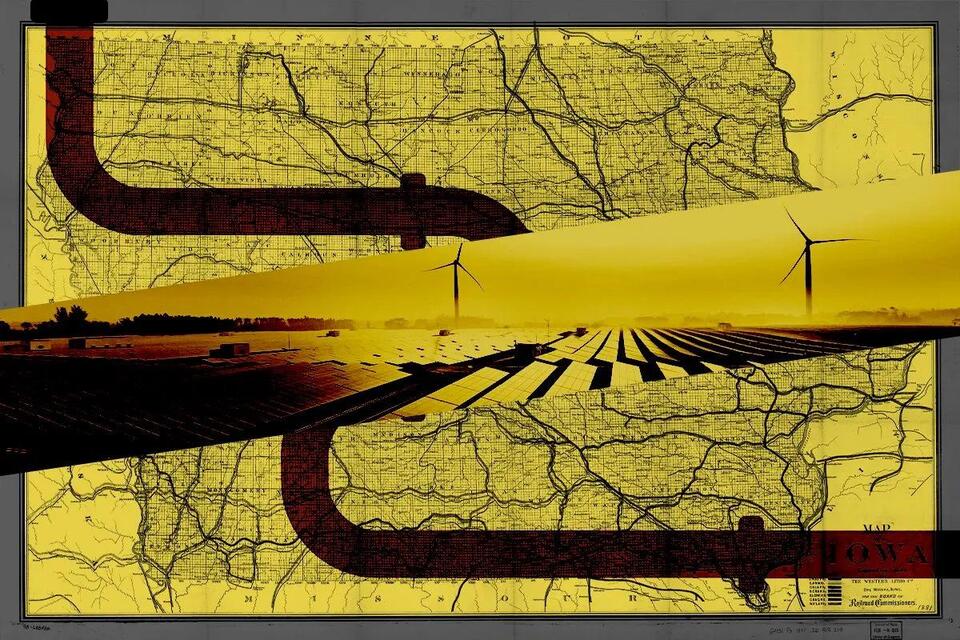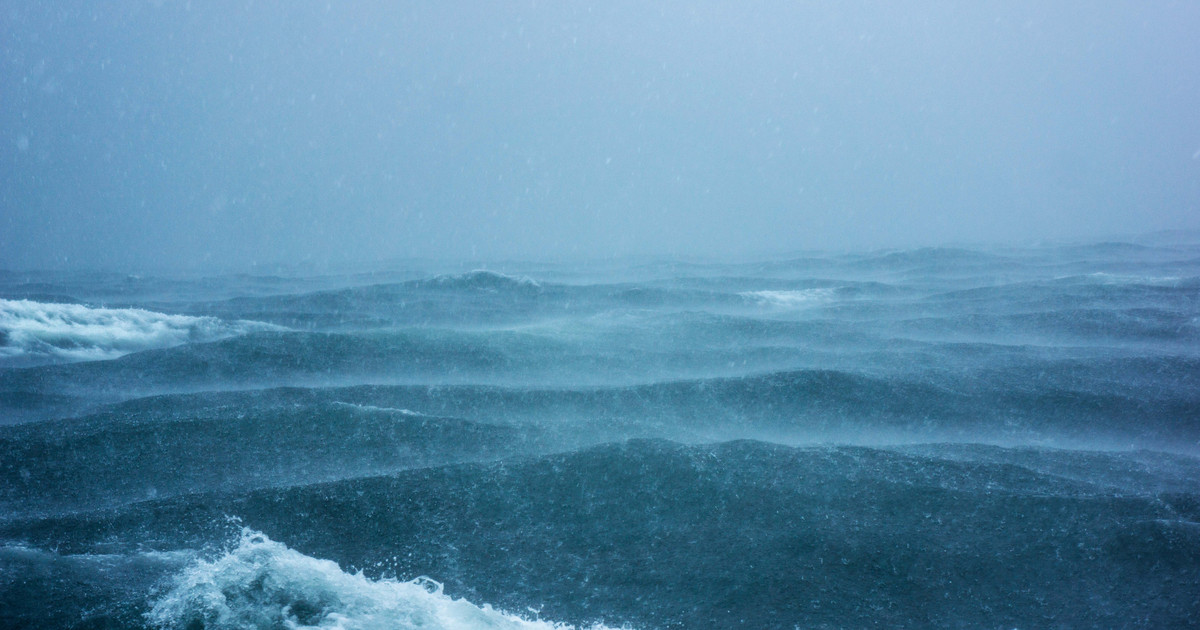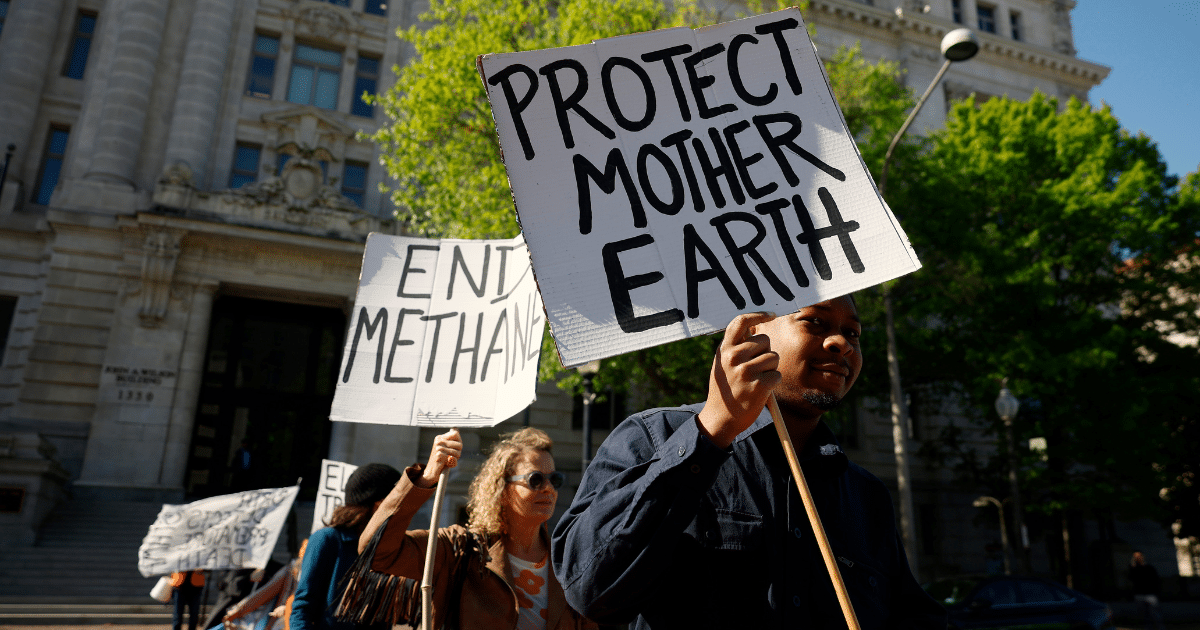Make America Matter Less (MAML? Is this a thing?)

Last month I traveled to Phoenix for the Society of Environmental Journalists conference. Although I am an American citizen, I live in Latin America and so I was advised not to bring my phone or laptop; the risk was low that my devices would be taken or that I would be hassled at customs, but they weren't nothing and if it was a problem it could potentially be a huge one. So, I bought a burner when I arrived and brought my kid's school laptop with me, things I have done before when reporting in non-democratic countries. This required arriving a day early to have time to get it all sorted, which cost money and work time and resulted in a handful of missed meetings and emails, and many hours of general inconvenience, such is the administrative burden of fascism.
At the conference, panels covered everything from literary climate writing to investigative reporting, data visualizations to keeping sources safe. Some explicitly named the moment that we're in, several did not, but it was central to every conversation being had in the hallways between conference rooms. Panelists and speakers had been harder than usual to book this year; several who had agreed to attend had canceled last minute. Two days before he was scheduled to give the lunch time plenary talk, Michael Crow, the president of Arizona State University—this year's conference host—canceled with no explanation. Or rather, had his administrative staff cancel on his behalf, towards the end of the final logistics call.
Joan Meiners, a terrific climate reporter for The Arizona Republic, was slated to interview Crow, who was named to Time magazine's "Climate 100" list last year, during the plenary. Instead she had an honest conversation with myself and the great Helina Selemon, health and science journalist for The Blacklight, an investigative unit for the New York Amsterdam News. The instructions were to be honest about the challenges facing journalists, and especially environmental journalists, at the moment, and to try to offer some advice for how folks might handle it. We didn't have much time to prepare (thanks, Mr. Crow), but we did what we could to name the problem (fucking fascism), acknowledge that there's no easy way through it, remind reporters to reach out to colleagues that have long dealt with repression on their beats both within and outside of the country, and encourage everyone to rethink journalistic norms (an aversion to quoting unnamed sources, for example) that may simply not work in the U.S. today.
In the weeks since, I've been thinking more and more about what America's turn toward authoritarianism, and the fact that it includes a crackdown on even talking about climate change, let alone addressing the problem, means for the rest of the world, and for the planet. TLDR: in the near-term, bad; in the long term, perhaps...good?
Let me explain:
The U.S. is historically the world's top emitter, and it's still in the top three. It's also the world's largest producer of oil and top exporter of gas. Outside the U.S., American companies are key partners in most of the world's big oil and gas production projects, too. Where they're not involved, U.S. banks probably are, or U.S. private equity firms. Equally, the U.S. is the creator and top exporter of climate denial. It's also the U.S. government, doing the bidding of U.S. companies, that has blocked many of the world's attempts to address climate change.
So what happens when the U.S. not only pulls out of any international work with the word "climate" in it, but also cancels millions of dollars in energy research, while also creating trade wars with many of the world's largest governments?
Vamos a ver, but a few things are happening already. First off, it's driven China and the European Union together in ways that were not happening before, which is interesting given their respective investments in energy transition.
Then there's the possibility that international bodies might actually get things done on climate absent U.S. obstructionism. In fact, this already happened in April. At the UN's International Maritime Organisation (IMO) meeting, the U.S. pulled out of talks around an agreement to reduce shipping emissions, but the deal went forward regardless. It's not a perfect deal; small island states thought it should require higher emissions reductions and come with a blanket tax rather than fines for those who over-emit. But after a decade of dithering, much of which was driven by the U.S., it passed. When speaking to the BBC about the impact on the deal of the U.S. pulling out, IMO delegates effectively shrugged, noting that the U.S. only flags 178 cargo ships, representing 0.57% of worldwide commercial shipping tonnage, so if it decides not to implement the new agreement, "it is unlikely to make a significant difference." Snap! The U.S. is often the baby throwing food at COP, and has repeatedly shoved carbon capture down everyone's throat during IPCC gatherings. Surely Saudi will take up this mantle, but without the support of its influential pal Uncle Sam in the room, will it carry the same weight?
China has stopped negotiating with the U.S. altogether, put off by the government's lack of civility, and Japan, similarly perturbed, has threatened to dump its U.S. bonds if Washington doesn't cool it with the insults (a threat it has since walked back, and yet...it's out there). Peter Thiel and his PayPal Mafia (yes, including Elon) would love nothing more than to see the U.S. dollar and American democracy take a long walk off a short pier together—a necessary first step to their inane "Network State" plan—but it's possible they've misjudged how the rest of the world will respond or, to put a finer point on it, the rest of the world's willingness to simply ignore the U.S.
For decades, U.S. fossil fuel executives have been reminding us that they are in a global business, not an American business. It's not their job to make oil and gas cheap or safe for Americans, it's their job to make money off oil and gas, globally. Former Exxon CEO Lee Raymond once famously declared: "“I’m not a U.S. company and I don’t make decisions based on what’s good for the U.S." Yet, those same executives have always expected the U.S. government to make decisions based on what's good for the fossil industry. Now the chickens have come home to roost and while their preferred candidate may will rid them of a few pesky lawsuits stateside and make them a lot more money in the near term, he may also hasten their demise along the way.
One of the questions that came up a lot during that conference in Phoenix was what do I do if my sources, U.S. climate research, the FOIA system, and so forth go away? I don't mean to make light of those questions; what's going on right now marks the end of a remarkable period of press freedom, academic freedom, and free speech in general in the U.S. (although the country has certainly been headed this way for a long time). But my answer to these questions is similar to broader ones about what the world will do if the U.S. refuses to act on climate: de-center it.
Talk to researchers in other countries, pay attention to what's happening globally because it impacts U.S. oil and gas companies as much as U.S. policy does, and because climate change is a global problem with global solutions, learn from people in countries that have never had a robust public information system how they get the information they need. Take inspiration from those who have lived through fascism and authoritarianism and found creative ways to do the work anyway (we've got one of those sorts of stories for you in the podcast this week). Personally, this has been my most important coping mechanism, my greatest defense against obeying in advance or just letting fear and overwhelm paralyze me. Remember that there's a great big world out there—it can and will find ways to operate around and without the U.S., and that might just be a good thing.
Climate Must-Reads






Drilled Must-reads:
I don't want to take over the Climate Must-Reads list with just our stuff, but we've been putting out a lot of great stories lately! ICYMI:
- Podcast episode on the role the U.S. military has played in branding environmentalists as terrorists, with a particular look at the Philippines
- We're doing a new series on TotalEnergies as part of our ongoing New Oil Colonialism project. The first two stories are out now:
- On their claims of "net biodiversity gain" in Uganda
- And on the impacts of Total's approach to resettlement in Tanzania, as it moves folks out of the way of the East Africa Crude Oil Pipeline (EACOP)
- A deep dive on a new study in Nature that puts a number to the damages caused by climate-change-exacerbated heat waves.






